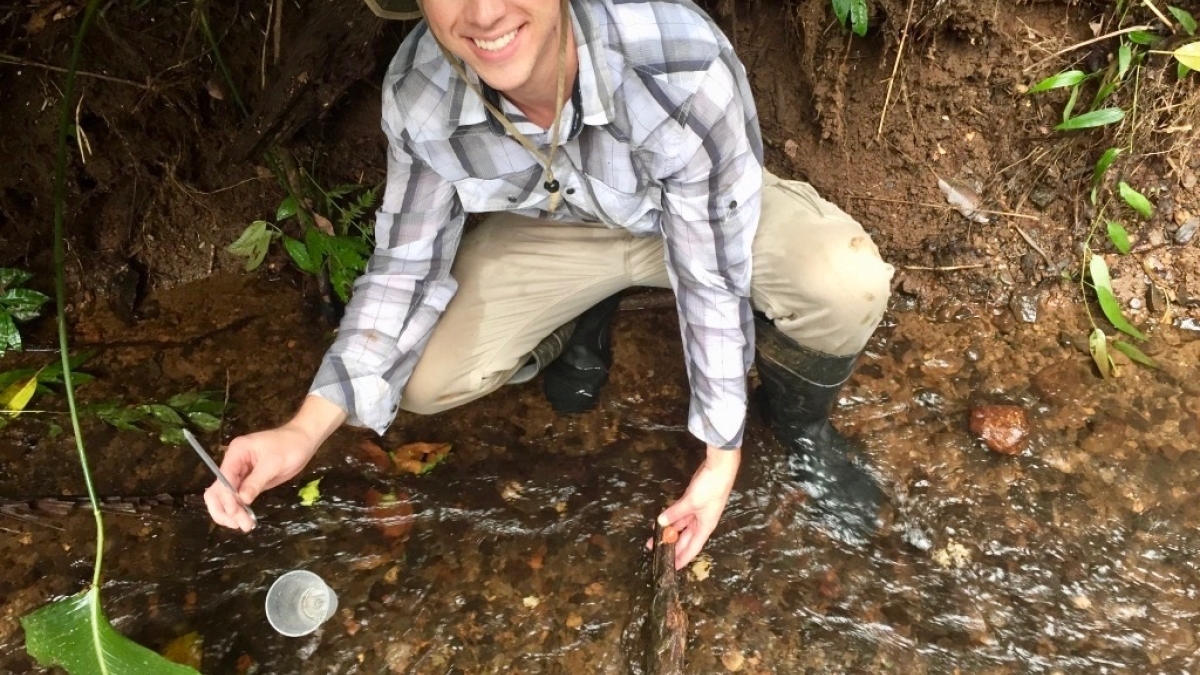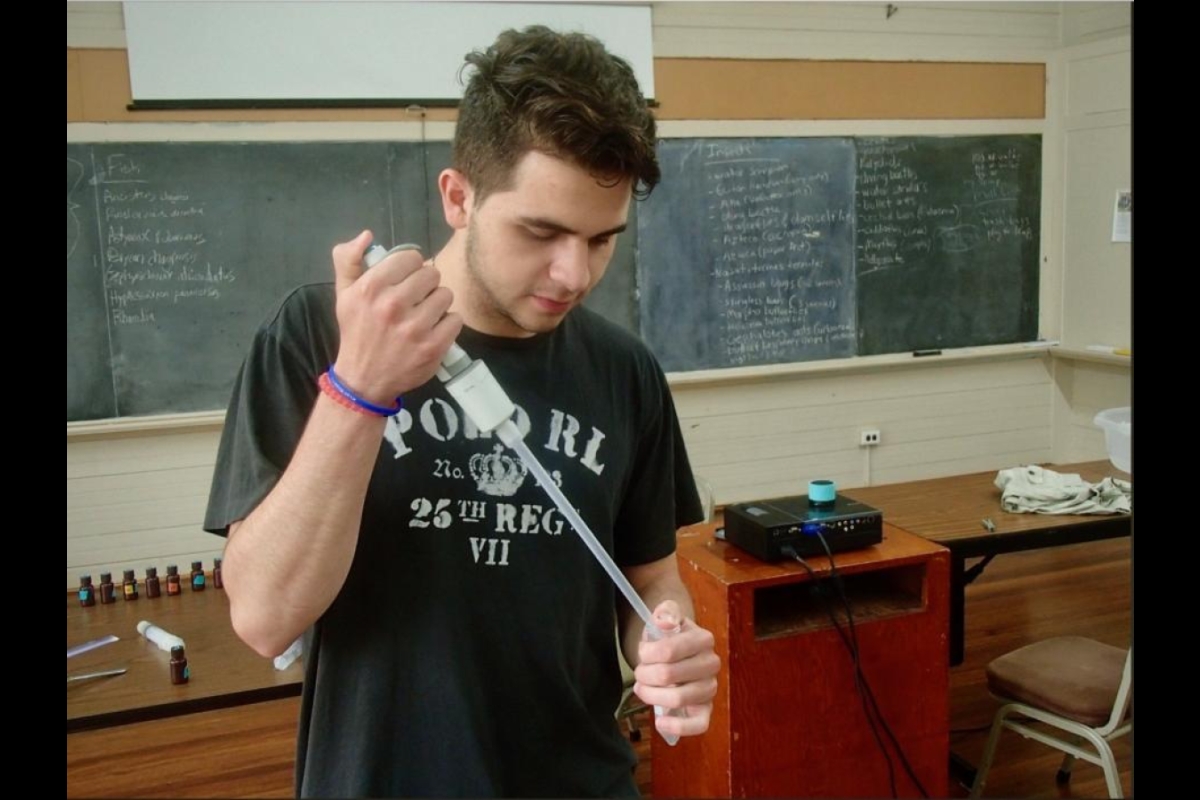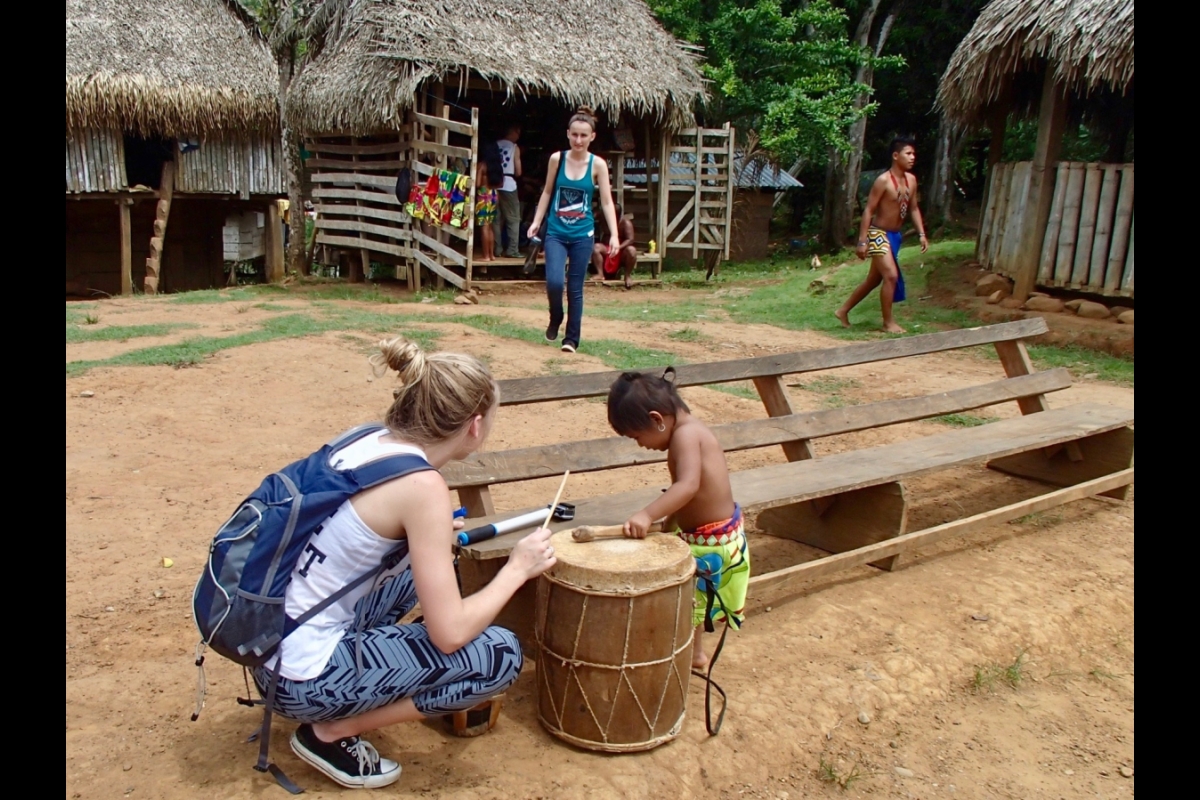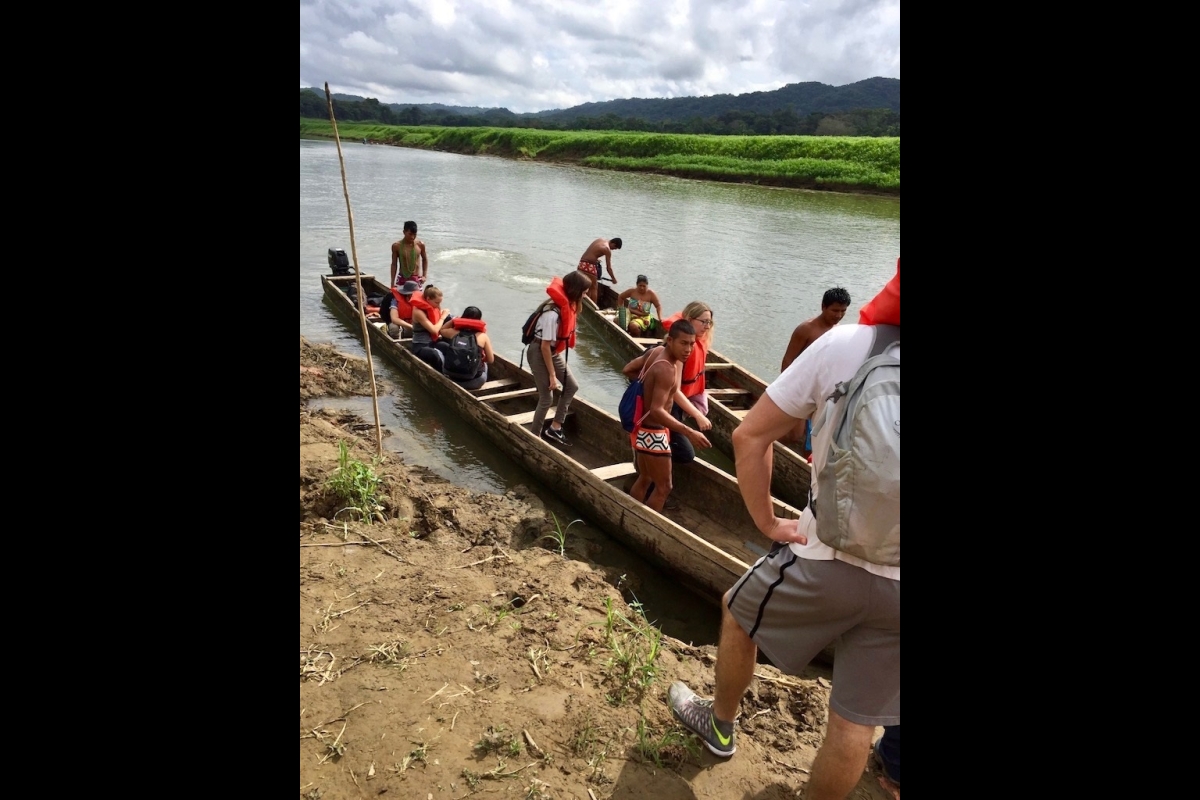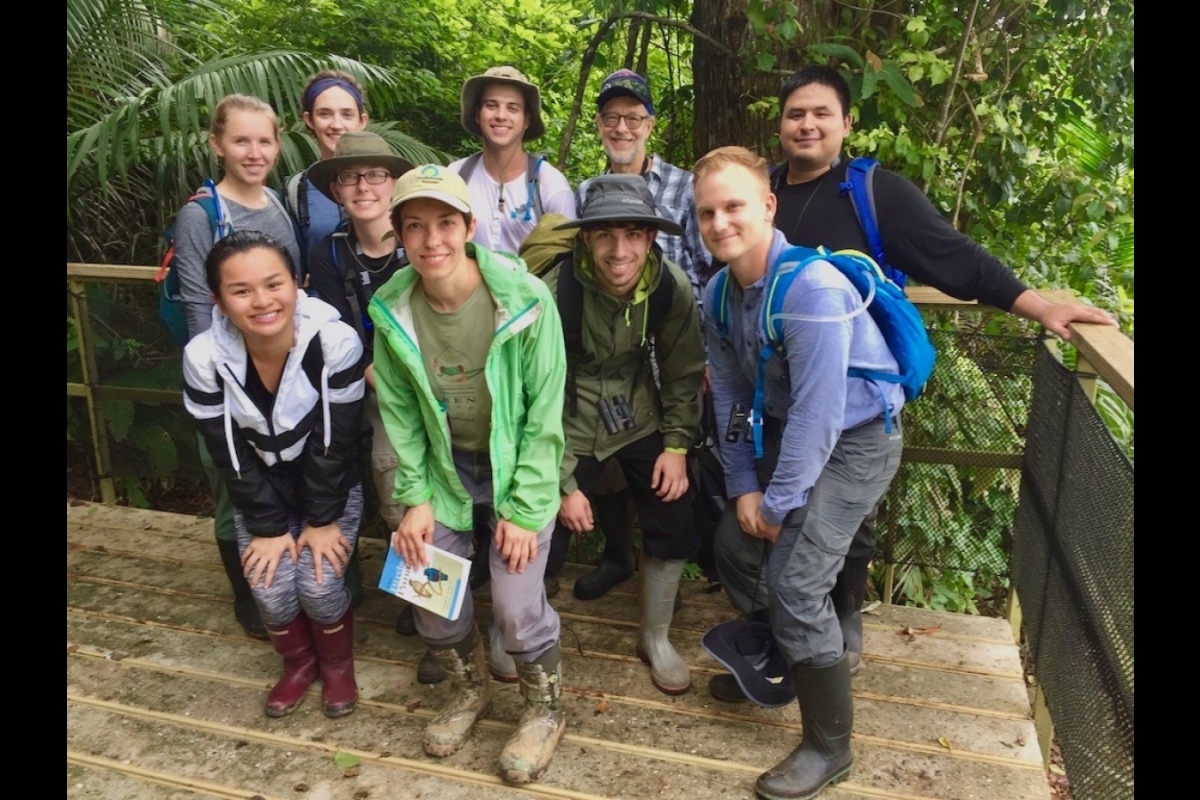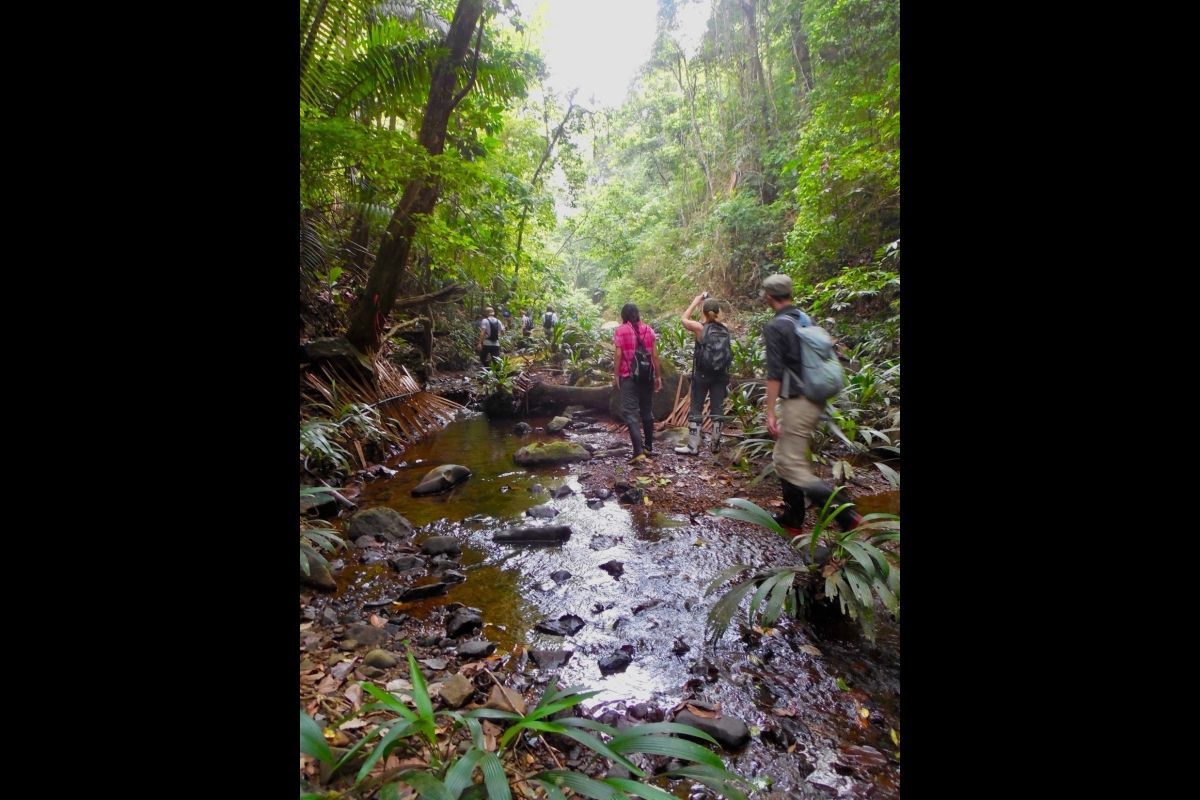Last chance.
The words jumped off the page.
And for senior Nicholas Ambus, those words turned into the chance of a lifetime. As a freshman at Arizona State University with no research experience, Ambus, a biological sciences major, stumbled across an email advertising a final chance to apply for the Experimental Tropical Biology course in Central America. He seized the chance to try something new.
“It seemed really enticing to me,” Ambus said of the program. “With the hands-on experience, the travel, it seemed like the perfect opportunity.” He signed up and began a journey that would change his perspective on science and enrich his undergraduate experience.
He spent nearly a month in a Panamanian rain forest walking through towering jungles, discovering tropical wildlife and beginning his first-ever scientific research project.
He initially wanted to study resources in streams, such as leaves that drop from surrounding trees, but became more interested in how fish affect a stream’s ecosystem. He was so interested in the project that he continued the research with desert fish species in Professor John Sabo’s lab after he returned to Arizona. Ultimately, his research was published in the peer-reviewed scientific journal Ecology of Freshwater Fish.
Ambus isn’t alone. Since the Tropical Biology study abroad course began in 2014, about 12 students each summer have participated. Like Ambus, the students joining the program didn’t have previous research experience. However, many leave with projects published in peer-reviewed journals. From last summer’s group, half are submitting their projects for publication.
That’s the entire point of the class, said School of Life Sciences Professor Jon Harrison, who has directed the program the last three years.
“When we started the tropical biology study abroad program in Panama for the first time, that was always our goal: It’s all about the projects,” Harrison said. “There are no tests. Students get interested in something and come up with a project. At the end, they present it. That’s the core of the course.”
Along with life sciences Professor Juergen Liebig, Harrison is leading another group of BIO 494 students into the rainforest this summer from June 4-21. Students take the course at a biological field station operated by the renowned Smithsonian Tropical Research Institute. During their time abroad, they’ll hike through the rainforest, eat Panamanian meals cooked by a local chef and, well, do lots of research.
For Ambus, that meant heading out to streams to dig through dirt, looking for fish. For senior Lauren Welch, who completed the course last summer, that meant following leaf cutter ants and measuring their leaf mass at different times of day. For other students, it meant watching hummingbirds at feeders, measuring plants, finding frog eggs in puddles or counting the number of animal species along the main road that runs through the research station.
“It’s a lot more involved than you would imagine,” Welch said of her project. “You go in thinking, yeah, I’ll just come up with a quick idea and then execute it, but it was much more involved than that.”
Students first submit a few ideas for research projects. Once they develop an idea, they submit a proposal. Then they collect the data. At the end of the class, they present their results to the class.
However, for many students, they are so inspired by the research, it doesn’t end there.
Nearly a year later, Welch and three other students from last summer’s program, undergraduate students Tess Prendergast, Nhu Nguyen and Melissa Hayhurst, still meet with Harrison every other week to discuss progress on the articles they are writing about their projects. They call the group “Publish That Research.”
“We’re all learning from each other,” Welch said. “We’ll go in and help each other with statistical analysis or how we should write our introduction. As a group, we discuss ideas. We compile papers that might be useful for everyone. It makes it a lot easier to get things done. I don’t feel so alone.”
Whether continuing in research or ending it after the six-week course, many students agree it changed the way they think about science.
“It changed my appreciation for science entirely because if you look at my research, it may seem insignificant to someone who doesn’t understand,” Ambus said. “I made measurements of excretion from very specific fish in a very specific ecosystem, but it’s really broadened my perspective on how everything matters and everything goes into a larger understanding of all these greater interconnected parts.”
This is just one of the many experiences offered through the ASU Study Abroad Office, which has 250-plus programs in more than 65 different countries.
Students interested in the Experimental Tropical Biology course must apply by March 1. Cost is $4,385, which includes tuition, room and board, insurance and day trips to historical and cultural sites around Panama.
Top photo: ASU student Daniel Karstetter works on his research in Panama, studying hydraulic forces on driftwood. Photo by Jon Harrison/ASU
More Science and technology

Diagnosing data corruption
You are in your doctor’s office for your annual physical and you notice the change. This year, your doctor no longer has your health history in five-inch stack of paperwork fastened together with…
Large-scale study reveals true impact of ASU VR lab on science education
Students at Arizona State University love the Dreamscape Learn virtual reality biology experiences, and the intense engagement it creates is leading to higher grades and more persistence for biology…

ASU-led space telescope is ready to fly
The Star Planet Activity Research CubeSat, or SPARCS, a small space telescope that will monitor the flares and sunspot activity of low-mass stars, has now passed its pre-shipment review by NASA.…


